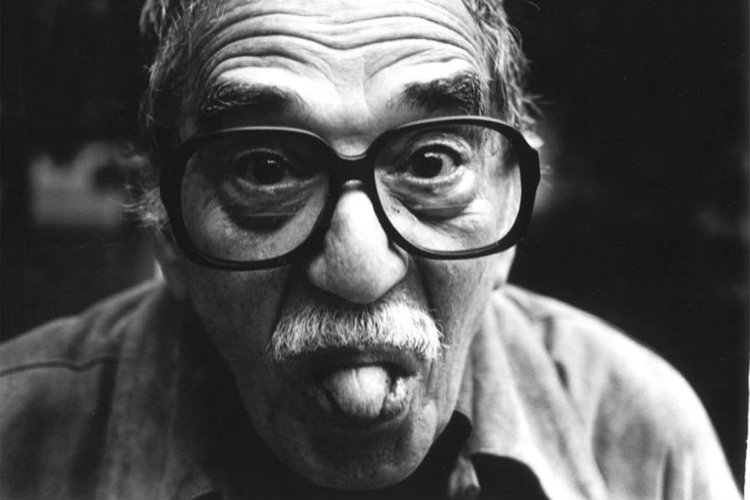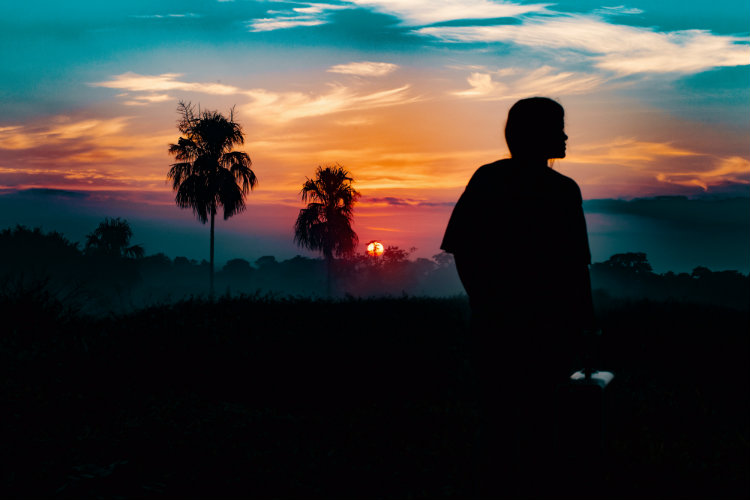Interview with an (Vampire) Irish Writer | Caroline Doherty de Novoa
Donal Fogarty talks to Caroline Doherty de Novoa about her book ‘Was Gabo an Irishman?’ exploring the parallels with Irish culture in the work of Gabriel Garcia Marquez.
Being that rather rare species – an Irish-English teacher working at a university in Colombia – I’m often asked to talk about the culture of my Irish forebears. Now whilst I may be Irish, I’m actually “from” London, so last week when I was called upon to provide some suitably academic craic for our institution’s St Patrick’s Day celebrations I felt it would be much more interesting if, rather than simply polish the pastiche of my plastic persona, I could somehow conjure up a real, 100% bona fide Irish writer.
So via the magic of Skype I was delighted to be able invite Caroline Doherty de Novoa into our library to talk about her marvellous book Was Gabo an Irishman? and the many parallels that exist between the Irish and Colombia cultures.
For once being British-ish was actually an asset. For I was able to take a perspective on a perspective – by which I mean, as Caroline gave her perspective on her experiences as an Irish expat living and writing in Bogota, I began to gain some useful insights into my own agonisingly Anglo-Saxon process of acculturation into this most un-British of societies.
Caroline’s first comparison was to do with close knit -extended families and the matriarchal figure that looms large in both cultures. This way of living was starkly different to my own fairly nuclear upbringing which, being further diminished by my carelessly losing both parents to cancer at a young age, may explain my trepidatious anticipation of the chaos of yet another family gathering this Easter – it’s not that I’m a misanthrope, it’s just that, when it comes to accepting the imperfect logistical gymnastics required to accommodate the diverse needs of such extended entourages, I simply don’t have the same lifetime of desensitisation training as Caroline and my Colombian cousins do.

Both countries, Caroline explained, seem to operate perfectly well under a system of functional chaos. She illustrated this with an anecdote about directions between fixed points A and B hinging on the whereabouts of a particular moveable object. “Straight on until you get to Carlos’s shop, then second left after the blue bicycle…” Caroline has noticed that while she’s happy to accept these types of instructions and simply set off, her English companions remain rooted to the spot questioning their validity (what if the bike has moved? who the hell is Carlos?). She also told a similar story about a red bicycle. And sure enough the instructions work; the particular bicycle happens to be in a certain place at the particular of time asking (it’s the curate’s and he always has lunch at the old widow’s on Tuesdays) and Carlos, as anybody who’s anybody knows, owns the ironmongers which you can’t miss anyway because it’s probably the only shop and it has a big sign saying Ferreteria de Carlos. If you’re Irish you’ve probably already moved on to the next the paragraph by now, but if you’re English you’ll be stuck here asking yourself well why not just say “straight on until the ironmongers” then? until I explain that because it literally sells everything it bears no street level resemblance to a DIY store so it’s much more accurate to just call it Carlos’s shop.
From a literary perspective she told us that the process of compiling and editing her book was illuminating. Being a collection of essays by writers from all over the world based in Bogota their relationship with Gabo’s canon was very much shaped by the cultural heritage of their countries of birth. The Chinese and Irish contributors, for example, had enjoyed Gabriel Garcia Marquez’s writing long before they’d set foot in Colombia, whereas the British, American and Dutch writer’s, being less accustomed to the influence of spirituality and the presence of ancestors in their everyday lives, found that they had to experience Colombia first hand before they could fully appreciate the magical realism contained within his stories. And it is through such an intercultural lens that these writers skilfully juxtapose the magic and mundanity of this country – which is not something that you’ll find in the Hollywood fiction of Colombia as portrayed by Netflix’s Narcos.

Caroline herself is a magical writer, for after hooking us with the spellbinding premise of the question in the title of her essay, she hits us with her opening gambit which is as entrancing as it is audacious:
My husband is convinced that there is a website called ‘wiki-paddy-a’, which I use to prove that my beloved homeland, Ireland, has given the world many great things. Like Halloween, for example, or the discovery of America.
That’s right. You heard me. Researchers are certain that there was a colony of Irish folk living in what is now South Carolina, when Christopher Columbus ‘discovered’ the New World. Fact. Look it up.
Anyway, despite the force of the evidence, my Colombian husband balks when I make these kinds of assertions. So, I can only imagine what his reaction will be to my latest theory: the late novelist Gabriel García Márquez was Irish.
Well, if you want to find out the magical truth behind her words you’ll have to get yourself a copy of her book. I for one will be leaning on our librarian until he acquires a copy. And on that note, if I ever make it back to Ireland I’m hoping to find out if the libraries there are stuffy British affairs or are they as vibrantly noisy as our Colombia ones.
So what’s that business about vampires in the title to this piece? Oh that. Yes well, thankfully Caroline saved me from delivering a tired old lecture (zombies and vampires seem to be a very popular genre of fiction amongst the young students here) about what country Bram Stoker comes from and which island’s ancient myths, legends and folklore may have inspired the creation of a blood sucking count.

